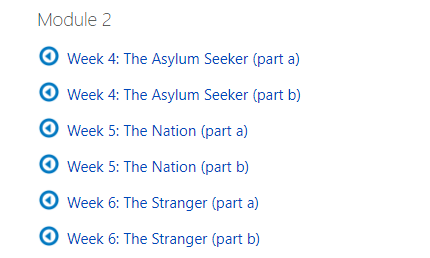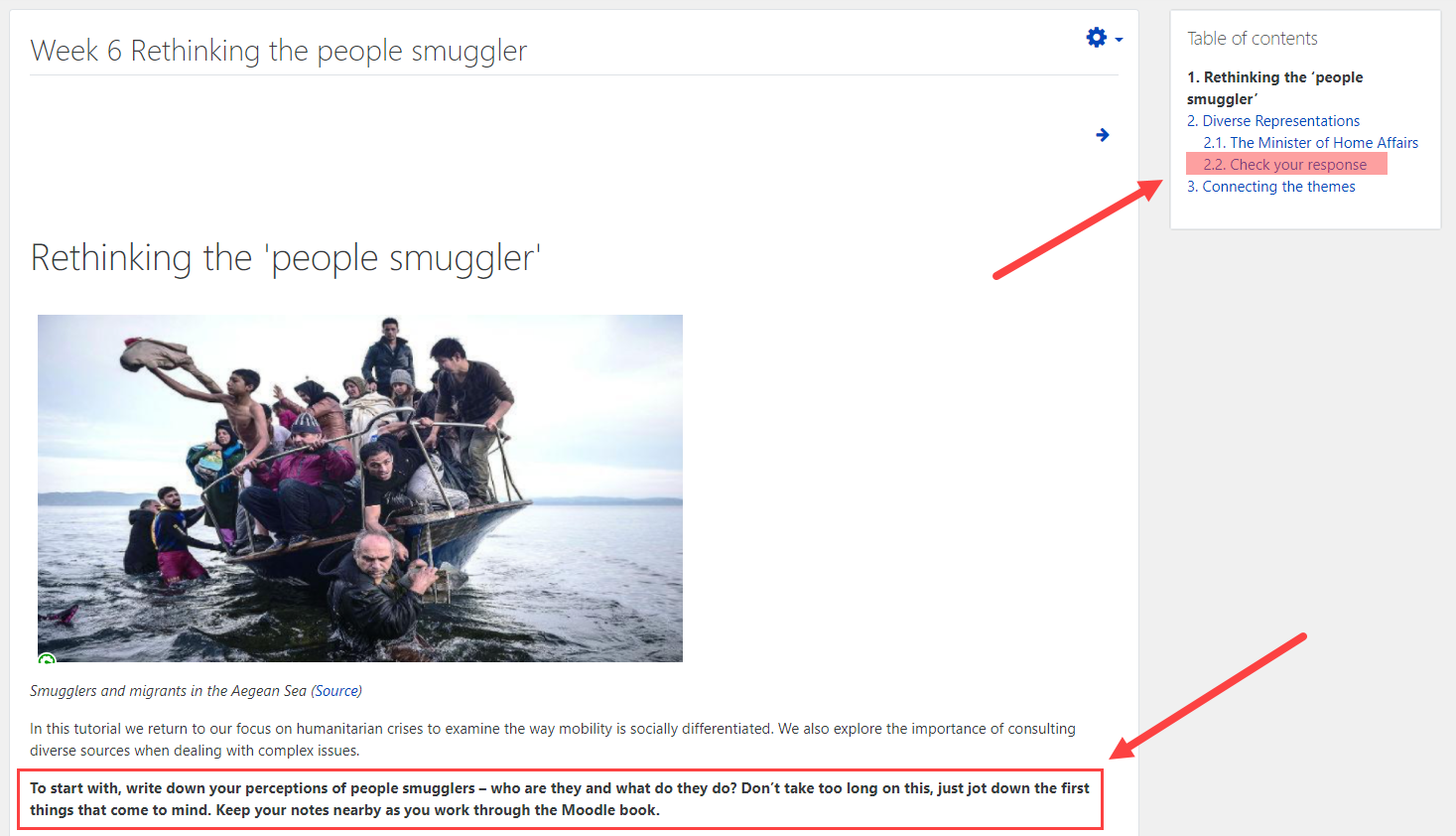Consistency and simplicity in rapid online transition

Nicole Cook | Arts, Social Sciences and Humanities (ASSH)
When transitioning my subject GEOG121 to online due to COVID-19, I wanted to maintain as much consistency with traditional delivery as possible, given that students in first-year find it difficult to navigate Moodle sites that differ in layout and format across subjects.
Hi everyone, my name is Nicole Cook and I'm the coordinator of GEOG121, a first year subject in the Faculty of Social Sciences that has about 370 students in it in first semester of first year.
When we were transitioning to online due to COVID-19, I wanted to keep the Moodle site almost the same as it was before we went online because I know how difficult it is for students to actually negotiate the Moodle site in first year and I think because there was a potential for so many of their subjects to have changes to the Moodle site I thought no, we're going to keep this a really, really simple transition. So I wanted to maintain as much consistency with the traditional delivery as possible to minimize the amount of new material and new layout that they were going to have to negotiate.
Yeah, so we transition in three main components, so the first one was that we re-recorded chunked lectures suitable for online format using Echo360 Universal Capture. We converted tutorial materials that would have been delivered face to face into Moodle books and this was partly about displaying content, but it also had included activities to facilitate deeper learning. And third, we developed a number of discussion boards and we just use a forum tool for that and that enabled students to ask questions and collaborate in thoughtful discussion and reflection with both us and also their peers.
So my advice transitioning to online will be #1 keep the site simple. Make it clearly laid out and signposted and definitely invest time into the discussion board so that students know that like there's other people on the other side of that interface.
GEOG121 is a large first-year subject that has approximately 370 students. Due to the COVID-19 pandemic, we transitioned our traditional face-to-face delivery to online from Week 4 onwards. The aim was to ensure a consistent transition that harmonised with the approach we had adopted for the first three weeks of face-to-face teaching. We focussed on:
- Shifting our lectures to online by pre-recording a series of short and punchy videos that meaningfully segmented content into manageable parts;
- Transitioning content from our former weekly one hour face-to-face tutorials to self-paced online Moodle books; and,
- Developing a set of relevant discussion forums (main, tutorial, assessment) and a communication strategy to respond to and summarise students’ contributions.
Our decision to focus on these areas was shaped by concerns associated with moving to a wholly synchronous online model such as student Internet access, diversity of learning styles, and the need to maintain consistency of teaching in an online format (15 tutorials run by 7 teachers). Our decisions were also informed by consideration of the development needs and skills of our teaching team which included three first-time teachers, and many new to wholly online teaching.
How?
Online Lectures
Our lectures were recorded with Echo360 Universal Capture and added to Moodle via the Echo360 Active Learning Platform Moodle activity (direct link). Videos were recorded in multiple parts for each week and presented/accessible to students via links that were embedded within the context of online modules. This transition was possible thanks to the outstanding support of the lecturing team consisting of Natascha Klocker, Chantel Carr and Thomas Birtchnell.

Tutorials via Moodle Books
Tutorial content and activities were redeveloped with the support of GEOG121 tutors and Dr Laura Hammersley, using self-paced online Moodle books which kept content linear, concise and easy to access. Pages within each book consisted of text, graphics and opportunities for active learning via a series of activities. The screenshot below demonstrates how teacher responses and suggestions were added at specific points as a guide for students to self-assess their responses and level of understanding against.

Discussion Boards (Main/Tutorial/Assessment)
Discussion boards were developed using the Moodle Forum activity.
The main discussion board had the key threads about the subject and a weekly video diary post from the Subject Coordinator that provided updates on new information added to the Moodle site. It also provided reminders about assessments and was used to prompt engagement with available online learning tools and support services.
The tutorial discussion boards were moderated by two tutors. Hundreds of posts were contributed by students and so the teaching team developed a process where one tutor each week would read through and provide a summary of responses from students. They would refer back to particular contributions and mention students by name when they raised significant points, thus enabling the tutors to facilitate the momentum of discussions moving forward. It would take the tutor three hours each week to develop their responses so it provided an overview of what students had raised in their own discussions.
The assessment discussion board was moderated by module lecturers, allowing the Subject Coordinator to concentrate on bigger picture weekly posts in the main discussion forum.
Reflection
To better understand student experiences of transition to online delivery we conducted an online survey in Moodle at the end of semester. Students emphasised the value of Moodle books to facilitate deeper understanding:
"I appreciated the use of Moodle books … they allowed for a deeper understanding through the layout of the books."
- Student
"The Moodle books and discussion board was excellent. I could fit around my timetable nicely and had the opportunity to complete whenever I wanted to. The Moodle books were always engaging and the discussion forum was great."
- Student
However, students also valued online synchronous tutorials in their other first-year subjects that facilitated confidence in learning, and an incentive to participate:
"Having established time with a tutor in case of questions helped me build confidence in the subject"
- Student
"It gave me an incentive to complete the lecture and activities; I enjoyed contributing in class and asking questions"
- Student
Developing Moodle books takes about a day per tutorial, working from already developed tutorial notes for face to face teaching. Breaking discussion boards into three parts and delegating content feedback to tutorial teams allowed me to maintain a birds-eye-view of the subject and keep direct contact with students through weekly video posts.
Support resources
- Adding an Echo360 video to your Subject Site | L&T Hub resource
- Using Moodle Books | L&T Hub resource
- Recording with Echo360 Universal Capture | L&T Hub resource
- Creating discussion forums | L&T Hub resource



